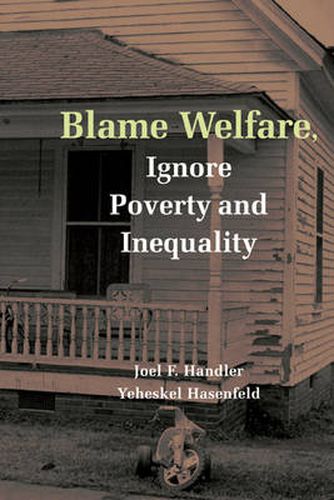Readings Newsletter
Become a Readings Member to make your shopping experience even easier.
Sign in or sign up for free!
You’re not far away from qualifying for FREE standard shipping within Australia
You’ve qualified for FREE standard shipping within Australia
The cart is loading…






With the passage of the 1996 welfare reform, not only welfare, but poverty and inequality have disappeared from the political discourse. The decline in the welfare rolls has been hailed as a success. This book challenges that assumption. It argues that while many single mothers left welfare, they have joined the working poor, and fail to make a decent living. The book examines the persistent demonization of poor single-mother families; the impact of the low-wage market on perpetuating poverty and inequality; and the role of the welfare bureaucracy in defining deserving and undeserving poor. It argues that the emphasis on family values - marriage promotion, sex education and abstinence - is misguided and diverts attention from the economic hardships low-income families face. The book proposes an alternative approach to reducing poverty and inequality that centers on a children’s allowance as basic income support coupled with jobs and universal child care.
$9.00 standard shipping within Australia
FREE standard shipping within Australia for orders over $100.00
Express & International shipping calculated at checkout
With the passage of the 1996 welfare reform, not only welfare, but poverty and inequality have disappeared from the political discourse. The decline in the welfare rolls has been hailed as a success. This book challenges that assumption. It argues that while many single mothers left welfare, they have joined the working poor, and fail to make a decent living. The book examines the persistent demonization of poor single-mother families; the impact of the low-wage market on perpetuating poverty and inequality; and the role of the welfare bureaucracy in defining deserving and undeserving poor. It argues that the emphasis on family values - marriage promotion, sex education and abstinence - is misguided and diverts attention from the economic hardships low-income families face. The book proposes an alternative approach to reducing poverty and inequality that centers on a children’s allowance as basic income support coupled with jobs and universal child care.